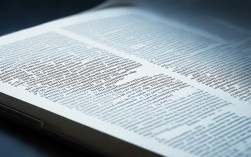Learning English involves mastering vocabulary, spelling, and usage. For many learners, writing words correctly can be challenging, especially when dealing with homophones, silent letters, or irregular spellings. Below is a carefully selected list of 70 English words along with their correct spellings, common mistakes, and tips to remember them.

1-10: Common Words with Tricky Spellings
- Accommodate → Accommodate (Two "m"s and two "c"s)
- Acheive → Achieve ("i" before "e" except after "c")
- Arguement → Argument (No "e" after "u")
- Believe → Believe (Follows "i before e")
- Buisness → Business (Think "busy-ness")
- Calender → Calendar (Ends with "-ar")
- Definately → Definitely (Root: "finite")
- Dilemna → Dilemma (Double "m")
- Embarras → Embarrass (Two "r"s and two "s"s)
- Febuary → February (Pronounced "Feb-roo-ary")
11-20: Words with Silent Letters
- Knight (Silent "k")
- Psychology (Silent "p")
- Debt (Silent "b")
- Island (Silent "s")
- Wednesday (Silent "d")
- Honest (Silent "h")
- Muscle (Silent "c")
- Scissors (Silent "c")
- Thumb (Silent "b")
- Wrist → Wrist (Silent "w")
21-30: Homophones (Sound-Alike Words)
- Affect (verb) vs. Effect (noun)
- Their (possession) vs. There (place) vs. They’re (contraction)
- Your (possession) vs. You’re (contraction)
- Its (possession) vs. It’s (contraction)
- Stationary (not moving) vs. Stationery (writing materials)
- Compliment (praise) vs. Complement (complete)
- Principal (school head) vs. Principle (rule)
- Desert (dry land) vs. Dessert (sweet food)
- Break (to separate) vs. Brake (stopping device)
- Peace (calm) vs. Piece (part)
31-40: Frequently Misspelled Long Words
- Conscientious (Often missing the second "c")
- Exhilarate (Not "exhilerate")
- Maintenance (Not "maintainance")
- Mischievous (Not "mischievious")
- Occasion (Double "c," single "s")
- Pneumonia (Silent "p")
- Queue (Four silent letters)
- Restaurant (Not "restaraunt")
- Separate → Separate (Think "par" in the middle)
- Unnecessary (Double "n," double "s")
41-50: Words with Double Letters
- Committee (Double "m," double "t," double "e")
- Occurrence (Double "c," double "r")
- Success (Double "c," double "s")
- Address (Double "d")
- Recommend (Double "m")
- Tomorrow (Double "m")
- Apparent (Double "p")
- Embarrass (Double "r," double "s")
- Misspell (Double "s," double "l")
- Accommodate (Double "c," double "m")
51-60: Words Borrowed from Other Languages
- Bureau (French origin)
- Fiancé/Fiancée (French, note gender endings)
- Schadenfreude (German)
- Rendezvous (French)
- Café (French, often anglicized as "cafe")
- Cliché (French)
- Kindergarten (German)
- Tsunami (Japanese)
- Hors d'oeuvre (French)
- Chauffeur (French)
61-70: Words Often Confused in Writing
- Accept (to receive) vs. Except (excluding)
- Advice (noun) vs. Advise (verb)
- Lose (to misplace) vs. Loose → Loose (not tight)
- Than (comparison) vs. Then (time)
- Weather (climate) vs. Whether (choice)
- Allusion (indirect reference) vs. Illusion (false idea)
- Elicit (draw out) vs. Illicit (illegal)
- Capital (city/money) vs. Capitol (government building)
- Farther (physical distance) vs. Further (metaphorical)
- Peak (top) vs. Peek (glance) vs. Pique (interest/annoyance)
Tips to Improve Spelling
- Break words into syllables (e.g., "ac-com-mo-date").
- Use mnemonics (e.g., "Big Elephants Can Always Understand Small Elephants" for because).
- Read extensively to see words in context.
- Practice writing without autocorrect.
English spelling can be unpredictable, but with consistent effort, anyone can master it. Keeping a personal list of troublesome words and reviewing them regularly will help reinforce correct usage. Whether you're a student, professional, or language enthusiast, paying attention to these details will enhance your written communication.





